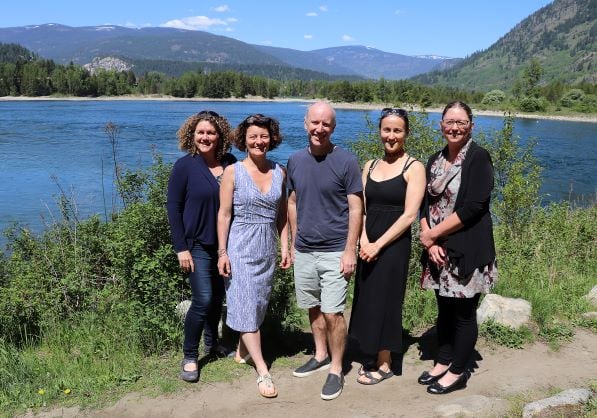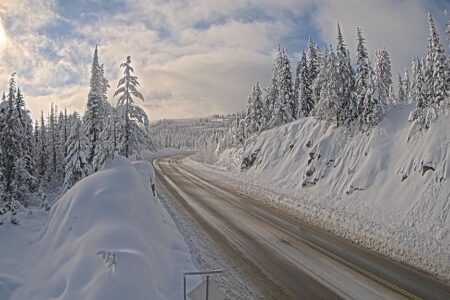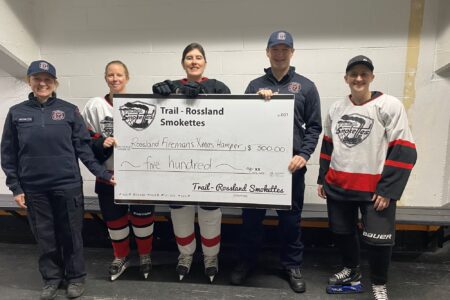One River: Ethics Matter Conference, May 30 - 31
Advancing environmental justice and stewardship in the Columbia River Basin is the focus of a conference in late-May that will bring together those interested in pushing for a brighter future on both sides of the Canada-United States border.
Selkirk College and the Community Colleges of Spokane are hosting the One River: Ethics Matter Conference at the Castlegar Campus on May 30 and 31. The sixth annual event invites those interested in new approaches to ethical governance of the river system to take part in two days of workshops, field excursions, expert panels and discussion.
“The Castlegar Campus rests at the confluence of the Columbia and Kootenay rivers, so it’s the perfect setting for this year’s conference,” says Jennie Barron, the Chair of Selkirk College’s Mir Centre for Peace and one of the members of the planning committee. “This year there is a special spotlight on youth and that comes at the right time because our governments are currently laying the groundwork for important changes to the Columbia River Treaty that will impact our region for decades. We hope to see strong participation by young people in our communities because it’s their future at stake.”
The Columbia River Treaty is an agreement between Canada and the United States that was first signed in 1964 and led to the development and operation of four dams on the upper Columbia River for flood control and power generation. Three of those dams (Duncan Dam, Mica Dam, Keenleyside Dam) are in British Columbia and one (Libby Dam) is in Montana. Governments on both sides of the border began reviewing the treaty in 2014 and talks continue to progress. Earlier this month, it was announced that three local First Nations will have seats at the negotiating table with status as official observers.
The impacts of the dams and flooded lands were extensive, forcing 2,300 people from their homes in the Arrow Lakes region. The dams took a heavy toll on the ecosystem; prior to construction the Columbia River was considered the world’s richest salmon river. During the original treaty negotiations, both Indigenous people and residents of the impacted communities were excluded from the talks.
“The injustices and impact of that original treaty are well known. It’s a difficult period in our region’s history,” says Allison Lutz, Selkirk College Geography Instructor and one of the members of the planning committee. “Our hope is that those most impacted by any future development on the river systems will be considered in the new treaty. That is why it’s vital to have youth, Indigenous leaders, community leaders and everybody else concerned about the future to spend these two days gaining a deeper understanding.”
The conference is under the direction of the Ethics & Treaty Project, which is hosted jointly by the Center for Environmental Law & Policy and Sierra Club with support from the Columbia Institute for Water Policy. This is the first time the conference has been held in the West Kootenay, with previous gatherings taking place in Missoula, Revelstoke, Boise, Portland and Spokane.
The first day of the conference will include the option to take part in either a morning history tour, a hiking ecology tour or a canoe paddle through the navigation lock at the Hugh Keenleyside Dam. The afternoon will consist of a two-hour interactive session that showcases youth engagement work from around the watershed that will be followed by a walk to the river and blessing of a Salishan sturgeon nose canoe. The second day of the conference will focus on workshops, panels and discussion about key ethical and practical issues, including restoring salmon to the Columbia River, enhancing ecosystem function, and bringing more voices into governance of the river through the ongoing renegotiation of the treaty.
“This is an excellent opportunity for people of our region to get a well-rounded look at the issues facing the Columbia River Basin,” says Barron. “We are bringing together a diverse group of people from both sides of the border who care deeply about this river and what it means for the generations to come.”
The One River: Ethics Matter Conference is free and open to everyone, with registration capped at 100 participants. To find out more and register for the event go to: http://selkirk.ca/event/one-river-ethics-matter
For more information please contact Jennie Barron at jbarron@selkirk.ca.
























